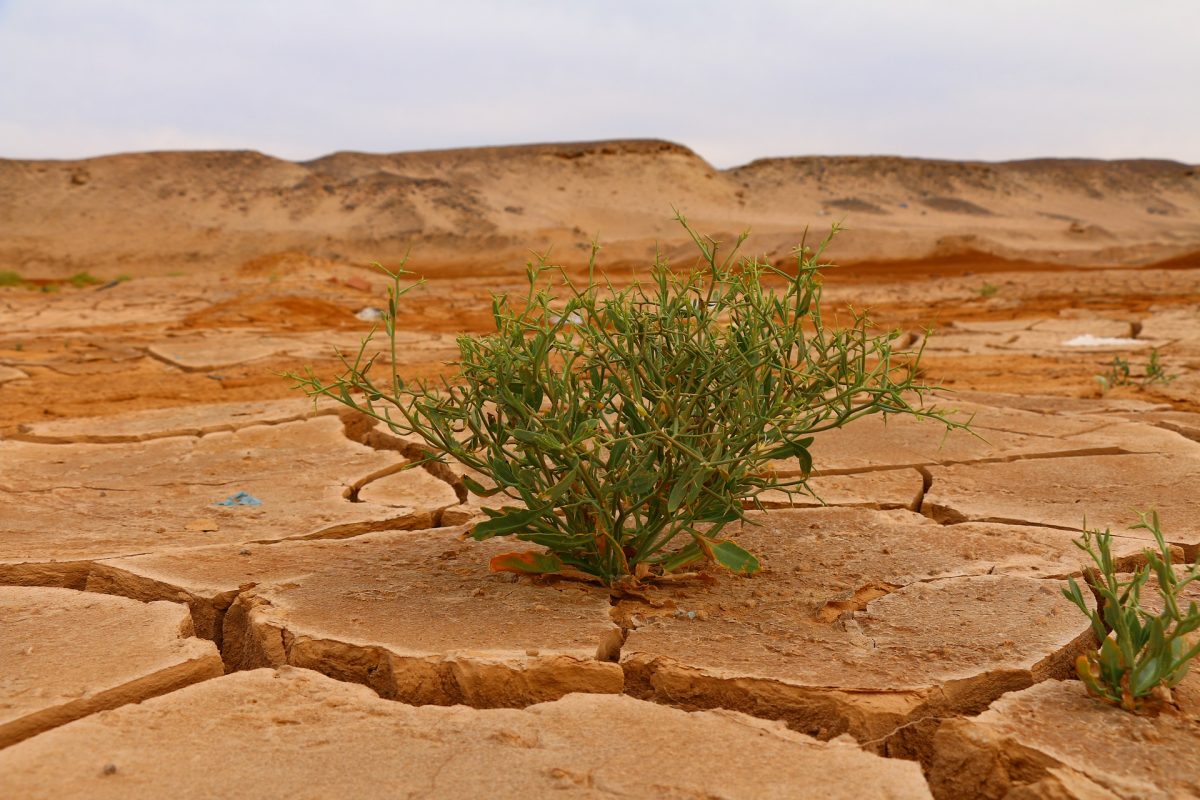The impacts of climate change on the humanitarian system: towards truly long-term cooperative action
On 1 December 2020, the German Federal Foreign Office hosted one of five virtual launches of the 2021 Global Humanitarian Overview (GHO) in Berlin. The GHO, which is published annually by the United Nations Office for the Coordination of Humanitarian Affairs (OCHA), is in its own words “the world’s most comprehensive, authoritative and evidence-based overview of the current state and future trends in humanitarian action”. It is the key work of reference in which Germany, other international donors and the OCHA coordinate what humanitarian aid is needed for the following year.
At the launch it was announced that, in 2021, 235 million people will need humanitarian assistance and protection – a near 40% increase from 2020. This means 1 in 33 people worldwide needs help. Amongst other events, this dire state of affairs is caused by the armed conflicts in Yemen, the Democratic Republic of Congo, Ethiopia, Afghanistan and other countries. It is fuelled by climate change, leading to more extreme weather events and natural catastrophes.
This concurrence of climate emergencies with other humanitarian situations makes a shift from immediate humanitarian responses to more long-term solutions harder, yet ever more necessary. To address future crises, expert panellists at the Berlin launch therefore called for improving and further extending anticipatory action projects. This post argues that anticipatory action, despite being a useful tool for mitigating harm when faced with an imminent disaster, does not go far enough. Focusing too much on anticipatory action instruments as the primary long-term means for addressing the increasingly dire humanitarian situation would draw attention away from its root causes. Taking the observations made during the Berlin launch as a starting point, the aim of this post is to take a step further and advocate a more integrated approach to humanitarian aid work.
Anticipatory humanitarian action
Traditionally, humanitarian aid responds to emergencies. To make humanitarian assistance more effective in the light of rapidly increasing risks of serious (climate) emergencies (e.g. annually recurring South Asia floods; South African cyclones Idai and Kenneth in 2019; East African droughts in 2011, 2017 and 2019), some experts involved in the panel discussion argued that moving humanitarian action from response to prevention and anticipation, from crisis management to risk management, can significantly reduce chaos and human suffering. For example, sophisticated early warning systems such as heat-wave warning present a considerable opportunity to avert food crises. It was furthermore submitted that, by means of anticipatory action, funds are employed more efficiently and the ever-expanding gap between demand and supply of humanitarian aid can be countered. In contrast to traditional humanitarian action, anticipatory action can be seen as a long-term means in that it can build resilience to future shocks. It does not, however, focus on truly long-term strategies to deal with climate change, most notably emissions reduction to promote environmental sustainability.
State’s human rights obligations regarding climate-related humanitarian crises
The author shares the Human Rights Council’s opinion that climate change requires a global rights-based response. Since humanitarian crises like conflicts and natural disasters often bring about serious human rights concerns, human rights protection should be at the core of humanitarian action. In the case of climate-related natural disasters, a failure by governments and other humanitarian actors to take reasonable preventive measures, including anticipatory actions and truly long-term solutions, should be considered a human rights issue. Under all international human rights treaties, State parties have obligations to respect, protect and fulfil human rights of all peoples. In a 2019 joint statement on human rights and climate change, five UN human rights treaty bodies have confirmed that climate change threatens the effective enjoyment of a number of human rights, including the rights to life, food, water and sanitation, health, housing, self-determination, culture and development. According to the statement, this may, under specific circumstances, include extra-territorial obligations. States violate human rights not only if they fail to adopt measures to prevent foreseeable human rights harm through climate change’s adverse effects, but also by contributing to climate change themselves and by failing to adopt measures against other climate change contributors. The Human Rights Committee specified these positive and negative obligations in its general comment No. 36 on Art. 6 ICCPR:
“States parties should (…) ensure natural resources are used sustainably, develop and implement substantive environmental standards, conduct environmental impact assessments and consult with other States about activities likely to have a significant impact on the environment and cooperate with them”.
The importance of truly long-term solutions to climate change
As all expert panellists repeatedly emphasised in their discussions, when a disaster is imminent, successful anticipatory action has the potential to reduce human suffering, destruction caused by extreme climate-related weather events and the financial costs of the response. This makes it an important means for states to fulfil their human rights obligations. However, it is the author’s conviction that measures addressing the humanitarian impacts of climate change should not be limited to anticipatory action.
Rather, the focus should be on truly long-term solutions. In line with their human rights obligations, States must become proactive in better addressing the root causes of climate change and structural problems through climate resilience, mitigation and adaption frameworks. With no serious efforts of reducing greenhouse gas emissions and keeping global heating within limits, the humanitarian impacts of climate change will become even more severe. In this regard, the overall commitment to better climate protection can also be seen as humanitarian action.
Towards more cooperative action involving different actors across the sectors
Many of the humanitarian programmes and projects already in place focus on working together with local communities to develop concepts for disaster preparedness and raising local awareness. Yet relatively few actors come up with climate resilience, mitigation and adaptation strategies. On top of the increasing humanitarian risks climate change brings with it, a shortage of funding and capacity further limits the ability of humanitarian actors to turn efforts to finding truly long-term solutions.
This predicament can be overcome by successful cooperation among the humanitarian and the development sector in concentrating on integrated actions to enhance climate resilience and mitigation. In the past, valuable commitments have been made to strengthen engagement between humanitarian and development actors (governments, international organisations, humanitarian or development civil society and non-governmental organisations, etc.). Now is the time to live up to those commitments. Inclusive and climate aware development policies that reduce the vulnerability of the poor by addressing poverty and its causes must be implemented immediately – before the impacts of climate change increase. Achieving swift, inclusive and climate-informed development must go hand in hand with emission reductions. Meanwhile, disaster preparedness and humanitarian responses must be combined with climate action. For the implementation and application of these measures exchange and constructive dialogue between governments, international organisations and civil society is of essence.
A good practice example for truly long-term action that tackles humanitarian, environmental and development problems is a project funded by the European Union and implemented by the Sudanese Environmental Conservation Society in North Darfur. The conflict in the Darfur region is considered to be the first climate change conflict. In the context of the persisting humanitarian crisis, the project is helping communities to combat environmental and development challenges by locally assessing climate risks, prioritising and implementing community action plans. It strengthens resilience and takes steps to help communities live with the effects of climate change by implementing community forests, creating shelter belts, rehabilitating surface water and the like. Finally, it contributes to improving natural resources conservation and adopting renewable energy practises by focusing on, among others, small-scale solar powered irrigation systems.
In light of recent events, investing in longer-term climate strategies could further help mitigate the impact of future pandemics, thus benefiting the health of humanity, economies and the planet. Governments should take the COVID-19 crisis as an opportunity to transition to a more sustainable society by building economic recovery on green and resilient foundations in accordance with global frameworks including the Paris Agreement, the Sendai Framework for Disaster Risk Reduction and the Sustainable Development Goals. As Sparks, Nedeski and Hernández have argued, environmental protection is vital for the prevention of infectious diseases. Climate change further exacerbates the risk of diseases being transmitted from animals to humans. In this sense, the author considers it useful for all humanitarian actors to closely collaborate with global health actors (national health ministries, WHO, global health civil society and non-governmental organisations, etc.).
Now is the time to consider litigation risks and take action
It can be expected that climate change litigation becomes an increasingly important tool for actors in the global South to positively oblige States, on the basis of legally binding human rights treaties, to take measures to prevent climate change and reduce greenhouse gas emissions. States held liable for high carbon dioxide emissions could face billions in potential damages for existing as well as future climate harms.
In light of the risk of costly climate claims, it is high time for governments to seriously address the impacts of climate change through cooperative action regarding resilience and mitigation. Apart from litigation risks, the overall economic consequences of climate change will be costly, too. This includes tremendous humanitarian costs. In that sense, efforts by, most notably, humanitarian and development actors should be focused more on real prevention of future crisis situations. Anticipatory action is only one part of an integrated approach that must combine humanitarian and development aims with the need for carbon dioxide emission reduction. In both monetary and humanitarian terms, climate inaction will cost more than climate action.

Laura Kraft is a PhD candidate and Research Fellow at the Max Planck Institute for Comparative Public Law and International Law in Heidelberg, Germany. She studied law at Freie Universität Berlin and the University of New South Wales in Sydney, and holds an MSc in Refugee and Forced Migration Studies from the University of Oxford.
